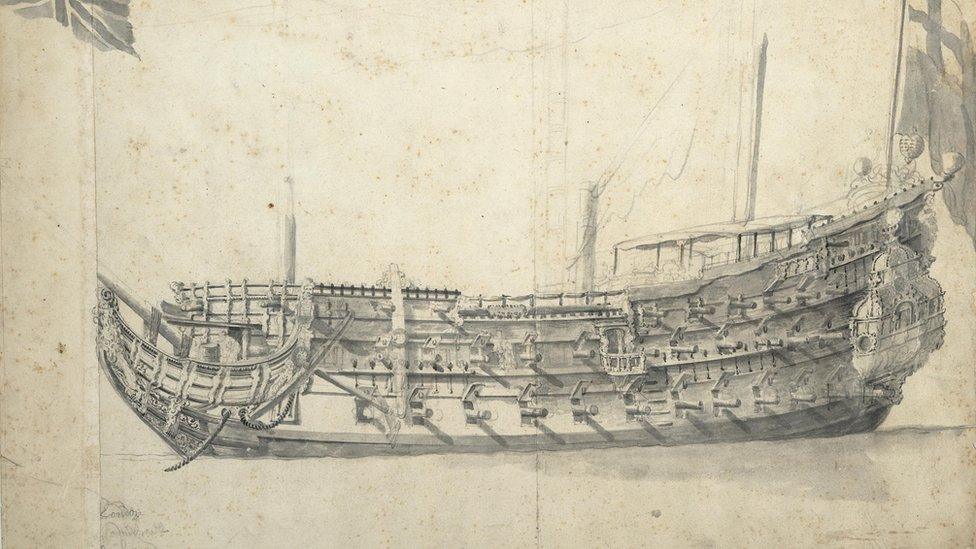The Gloucester shipwreck: Hopes part of royal wreck can be recovered
- Published
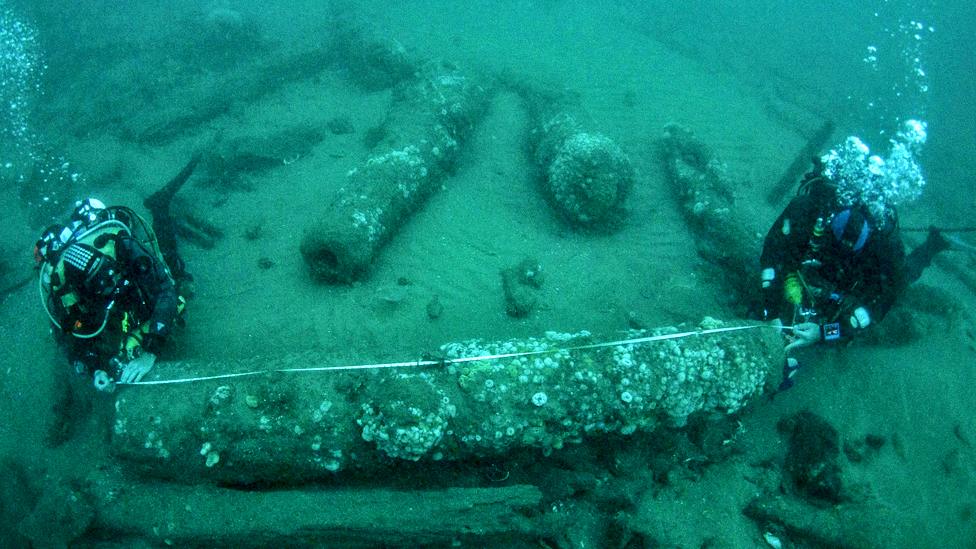
The 340-year-old Gloucester warship was discovered after a cannon was spotted on the seabed by divers
Sections of a royal shipwreck found off the Norfolk coast may be recoverable from the seabed, a former head of the British Army has said.
Lord Dannatt, the deputy lieutenant of Norfolk, is due to chair a charity caring for items from The Gloucester.
He hopes a permanent local museum can be created to house its artefacts.
The discovery of the wreck, which nearly drowned a future king in 1682, was revealed on Friday after being kept secret for years for security reasons.
The warship ran aground off the coast of Great Yarmouth, nearly killing the Duke of York, who went on to become King James II of England.
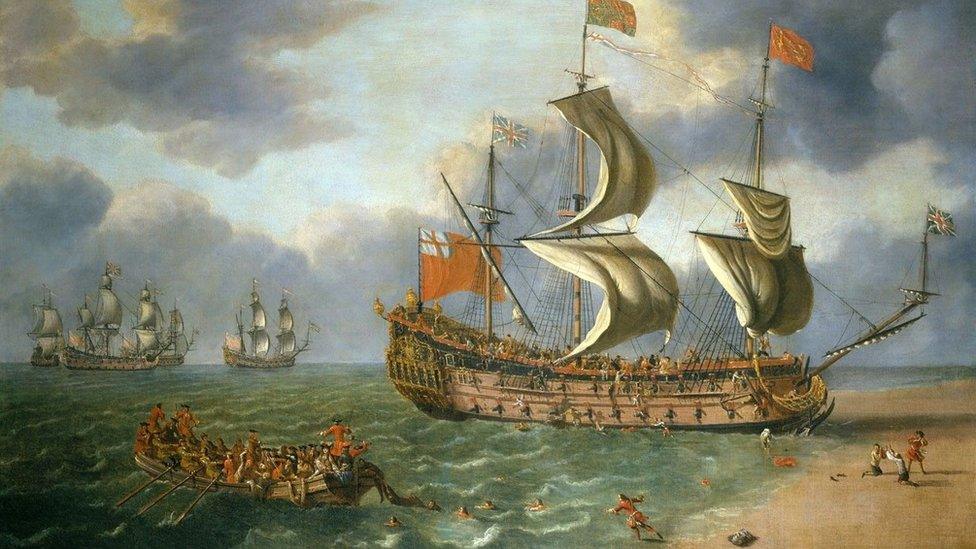
Diarist and naval administrator Samuel Pepys witnessed the Gloucester's sinking
The wreck was found by two divers in 2007 and its discovery has only just been made public after its many artefacts were carefully salvaged from the sea.
Maritime expert Prof Claire Jowitt, from the University of East Anglia (UEA), said it was "the single most significant historic maritime discovery since the raising of the Mary Rose in 1982, external".
Two divers say it was an "absolute privilege" to discover the warship
Lord Dannatt, the former British Army Chief of the General Staff, suggested it might be possible to raise some of the wreck.
"Whether the hull is intact I probably doubt it, but it is more likely it went down stern-first and the stern [rear] section is almost certainly intact," he said.
"That is probably recoverable and we may be able to bring it up to the surface like the Mary Rose - which is why we say the Gloucester is Norfolk's Mary Rose."
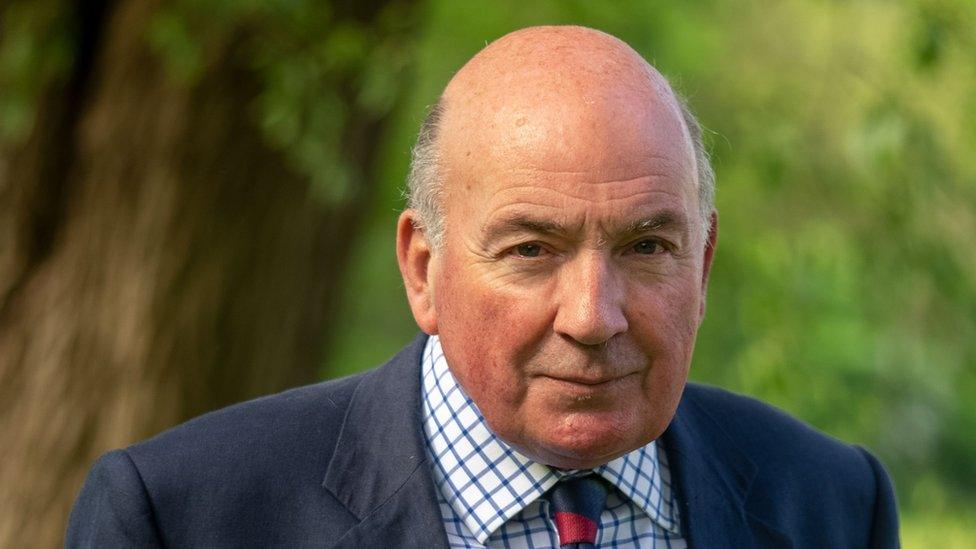
Lord Dannatt believes the ship's stern is intact and it might be possible to raise it from the sea floor
Lord Dannatt said the next stage would be to raise money to continue the site excavation.
"Building and putting into place a permanent exhibition in Great Yarmouth would be fantastic for the town, fantastic for Norfolk and fantastic for the nation," he said.
In the meantime, Norwich Castle Museum, external is planning an exhibition of some of the finds next year.

Find BBC News: East of England on Facebook, external, Instagram, external and Twitter, external. If you have a story suggestion email eastofenglandnews@bbc.co.uk
Related topics
- Published10 June 2022
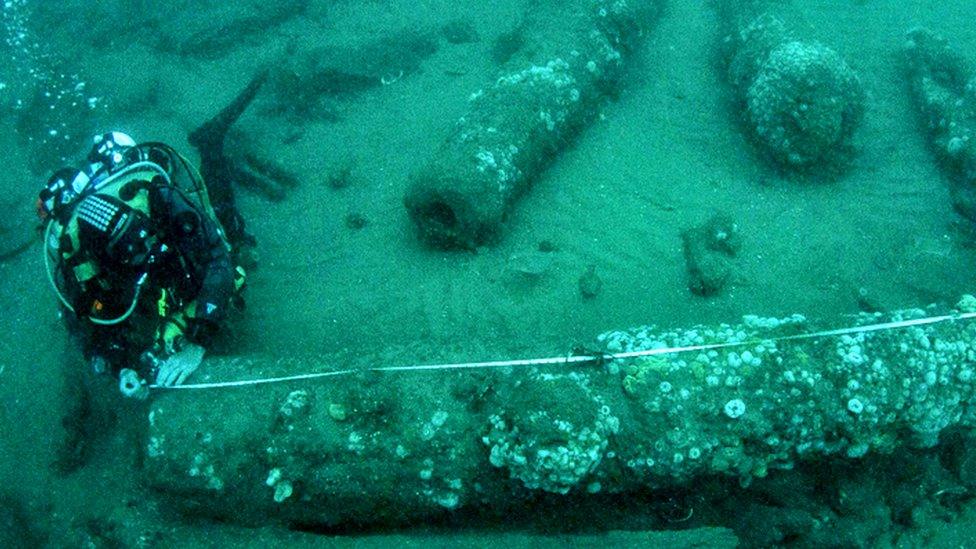
- Published23 September 2021
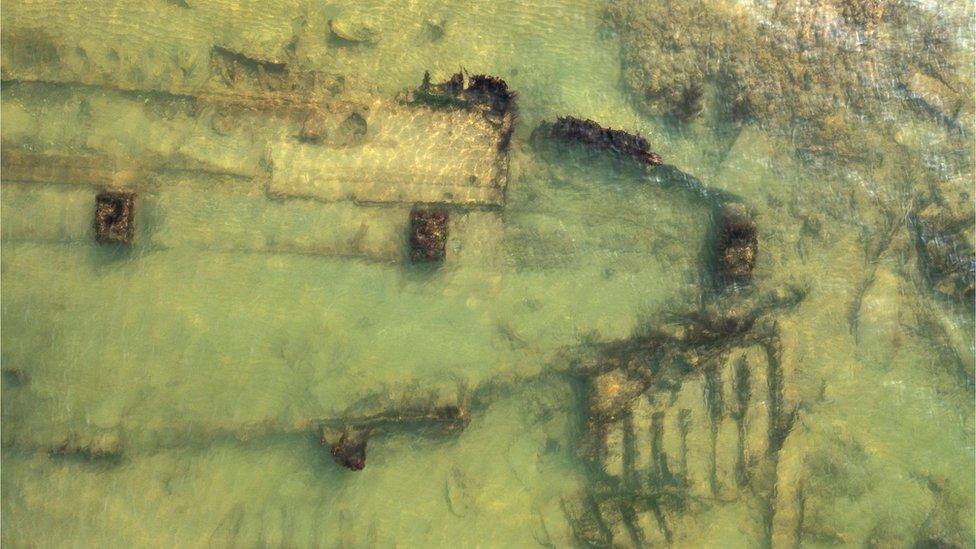
- Published6 July 2020
